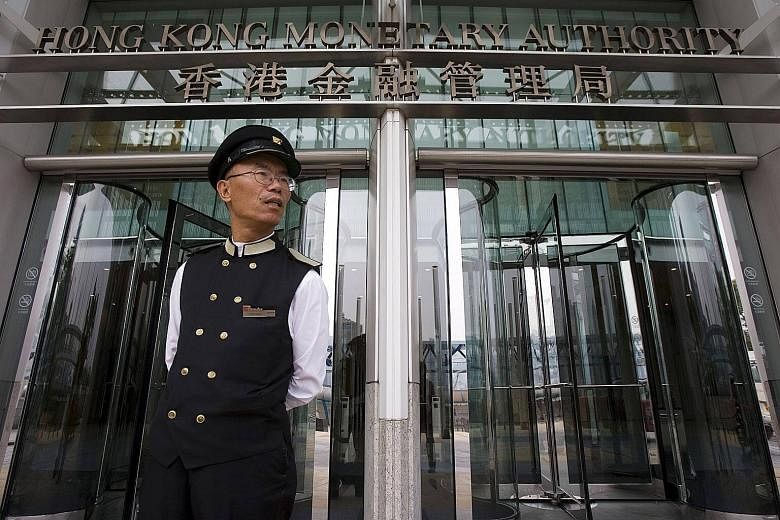HONG KONG (REUTERS) - The Hong Kong Monetary Authority on Thursday (Dec 15) raised the base rate charged through its overnight discount window by 25 basis points to 1 percentage point.
The move from Hong Kong's de facto central bank followed the US Federal Reserve's decision to raise the benchmark federal funds rate to a range of 0.50 per cent and 0.75 per cent on Wednesday.
Hong Kong tracks US rate moves as its currency is pegged to the US dollar.
The monetary authority sets its base rate through a formula that is 50 basis points above the prevailing US fed funds target or the average of the five-day moving averages of the overnight and one-month Hong Kong Inter-bank Offered Rate.
While Hong Kong has successfully weathered previous US rate hikes, the latest increase comes at an increasingly uncertain time for the city as it grapples with a slowing Chinese economy, a struggling retail and tourism sector and soaring property prices.
Norman Chan, chief executive of Hong Kong's monetary authority, told local media on Thursday there remained uncertainty in the pace of normalisation of US interest rates.
"The inflation rate of Hong Kong currency could be affected by the amount of capital outflow, the development of the international market and other related factors."
Paul Tang, chief economist at Bank of East Asia said the impact would be most noticable on the local property market which has been buoyed by a low interest rate and limited other channels for investment.
The IMF said in a report last month it expects growth in Hong Kong to rise to 1.9 per cent next year from an estimated 1.5 per cent this year but cautioned against stretched property valuations and stresses from exposure in mainland China.
Hong Kong's housing prices, which are among the most expensive in the world, had cooled since late 2015 but in the second half of this year returned back to near previous highs.
Should interest rates rise faster than expected the IMF said "there is a risk to the real economy from an adverse spiral of negative wealth effects, lower collateral values, slower credit growth, and weaker household and corporate spending."

